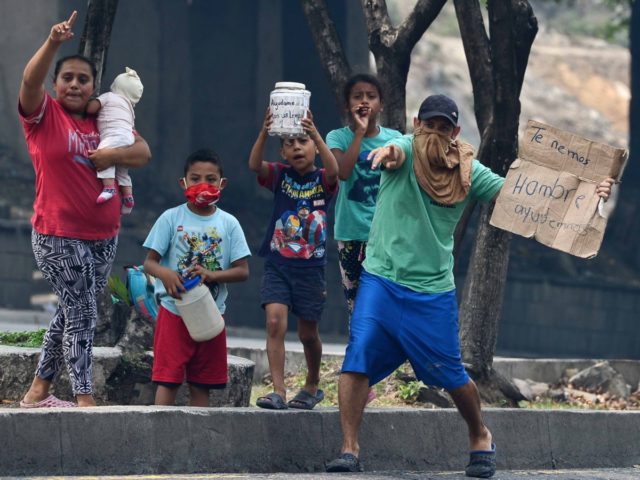The Los Angeles Times reported Monday that more people worldwide may die from the economic impact of the coronavirus pandemic than from the illness itself.
The Times reported that extreme poverty could increase by nearly 60%:
The United Nations predicts that a global recession will reverse a three-decade trend in rising living standards and plunge as many as 420 million people into extreme poverty, defined as earning less than $2 a day.
As for the 734 million people already there, the economic tsunami will make it harder for them to ever climb out.
…
At risk is three decades of progress. Since 1990, more than 1 billion people — 13% of the world’s population — have risen out of extreme poverty, according to the World Bank.
The gains were driven by China and India, where rapid industrialization has fueled major economic growth and lifted living standards.
Economists say those places are likely to recover more quickly than less-developed countries, particularly in sub-Saharan Africa and parts of South Asia, which depend on foreign aid and lack the economic engines to rally back. Citizens there will suffer the effects of reduced spending on education, healthcare and anti-poverty programs.
The Times notes that the U.N. has warned that the impact of the coronavirus could be equivalent to multiple famines.
Although only a small proportion of those infected with the coronavirus will die, entire economies have been affected by illnesses and shutdowns, both voluntary and mandatory.
The U.S. lost over 20 million jobs in April alone — and likely would have lost more without massive fiscal and monetary interventions that other countries have struggled to replicate.
There is some evidence linking economic recessions to higher mortality, due to poorer health, suicide, and other causes. However, the Times warns that some people may lack access to food — and that aid from wealthy countries, which are focused on their own challenges, may be in short supply.
In March, the New York Times fact-checked President Donald Trump’s claim that deaths from a recession would be greater than those from the coronavirus. It found his claim “lacks evidence,” and that “The opposite is more likely to be true, according to research and experts.”
Joel B. Pollak is Senior Editor-at-Large at Breitbart News and the host of Breitbart News Sunday on Sirius XM Patriot on Sunday evenings from 7 p.m. to 10 p.m. ET (4 p.m. to 7 p.m. PT). His new book, RED NOVEMBER, is available for pre-order. He is a winner of the 2018 Robert Novak Journalism Alumni Fellowship. Follow him on Twitter at @joelpollak.

COMMENTS
Please let us know if you're having issues with commenting.